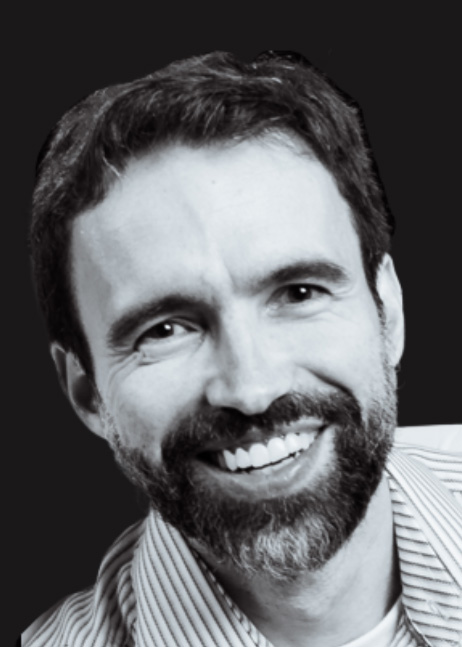Prajju Mantha

Why did you choose your program at UBC and what did you enjoy most about it?
I’ve always been interested in understanding systems—how people create rules and what frameworks societies and the world operate in. Combining a Political Science major with a Commerce minor felt like the best way to develop a critical-thinking mindset, explore those systems in detail and their applications to the rules and processes that drive businesses. To me, this felt like the best way to learn more about the world around me!
What were some of your most meaningful experiences at UBC?
Being a part of the Arts Undergraduate Society (AUS) and the Vancouver School of Economics Undergraduate Society (VSEUS) were some of the most fulfilling experiences I had. UBC is a huge school with students of diverse backgrounds, and the Faculty of Arts is enormous—it was challenging to feel connected to others at times. Helping to organize community events with other AUS and VSEUS members pushed me out of my comfort zone and to think about ways to create a sense of connection on a larger scale. I met some interesting, curious and friendly people who I never would’ve otherwise.
What choices did you make at UBC that contributed to your career success / journey?
UBC’s emphasis on interdisciplinary thinking inspired me to take COMM 388, Design Methods for Business Innovation. This was a studio-based design thinking course where students in different majors—from engineering to geography—learned how to apply design thinking frameworks to business innovation. I would highly recommend this course for any student. Not only were the topics interesting and applicable, but interacting with students from different disciplines gave me new perspective and angles to approach problem-solving. In my current job, I work with people from both engineering and business backgrounds, and I feel that this course helped shape the ways I interact with people who may have come from different paths than I did.
What was your first job after graduation and what other jobs did you have before your current position?
After graduation, I worked in sales at a software company called HubSpot. This was a hybrid sales/service role, so there was a lot more emphasis on coachability and a willingness to learn, rather than a specific major. After one year in this role, I made the jump to a sales operations role internally at HubSpot for six months, before moving to my current position and company: Senior Sales Operations Analyst at Dell Technologies.
Is your current career path as you originally intended? What challenges did you face in launching your career?
I was always keen to work in tech, but when I graduated, I had no idea what types of roles and departments were options besides sales and marketing. I definitely didn’t know anything about operations! In my first role after graduating, I made it a personal goal to meet with a variety of different people to learn about the day-to-day tasks and projects they work on. I found this was an easy way to learn something new and useful each time, even if I didn’t end up working their particular job. As for challenges, graduating in 2020 amidst the pandemic was definitely hard, as was adjusting to working full-time/remote. Talking to people who were in their early career was super helpful—they understood the difficulties in transitioning since they recently went through the same.
What do you like about your current job and what do you find challenging? How does it relate to your degree?
My current role involves supporting Dell’s federal sales team in their large order sales to federal customers, assisting with fulfilling orders, and providing status updates and ad-hoc reports across cross-functional operations teams. It’s been an interesting blend of Political Science and Commerce in an unexpected way! Larger government trends and spending initiatives directly impact the sales team’s selling season, so having an understanding of the broader political landscape helps me to support them more effectively. Similarly, business operations is all about efficiency—being able to examine lots of information, identify what’s important and come to effective conclusions are all skills that were strengthened through my Political Science degree. I feel that with the right skillset, a Political Science student definitely has the foundation to explore operations as a viable career option, in both the public and private sectors.
From your experience, what has been the value of having an Arts degree?
Communication and understanding large sets of information (whether that’s in numbers or words) are skills that are definitely enhanced through doing an Arts degree. Critical thinking is also an important skill that I feel that an Arts degree helps you practice a lot through classes, papers and projects.
What advice would you give to students and alumni interested in breaking into your industry?
I would recommend first off listing off all the relevant skills that come out of your degree and experiences at UBC, and then matching them up to the type of jobs you’re interested in. A lot of tech jobs are vastly different from one another depending on what department you’re in or what systems you’re utilizing, so speaking with people to learn about their day-to-day can help shed light on what the right direction is for you. There are tons of different types of entry-level jobs in tech which can serve as a great first step, especially if your background is as a student or in another industry.
What advice would you give to your first-year self?
Meet as many people as you can and ask them questions about what they’re studying, what they’re interested in and how they’re going about working towards their career plans. Small nuggets of information will end up sticking with you and slowly shaping your own path—so don’t worry about having it all figured out at the beginning. Just focus on the next best step and what you can do to be prepared for it. Slowly those steps will start adding up over time!
Prajju Mantha



Why did you choose your program at UBC and what did you enjoy most about it?
I’ve always been interested in understanding systems—how people create rules and what frameworks societies and the world operate in. Combining a Political Science major with a Commerce minor felt like the best way to develop a critical-thinking mindset, explore those systems in detail and their applications to the rules and processes that drive businesses. To me, this felt like the best way to learn more about the world around me!
What were some of your most meaningful experiences at UBC?
Being a part of the Arts Undergraduate Society (AUS) and the Vancouver School of Economics Undergraduate Society (VSEUS) were some of the most fulfilling experiences I had. UBC is a huge school with students of diverse backgrounds, and the Faculty of Arts is enormous—it was challenging to feel connected to others at times. Helping to organize community events with other AUS and VSEUS members pushed me out of my comfort zone and to think about ways to create a sense of connection on a larger scale. I met some interesting, curious and friendly people who I never would’ve otherwise.
What choices did you make at UBC that contributed to your career success / journey?
UBC’s emphasis on interdisciplinary thinking inspired me to take COMM 388, Design Methods for Business Innovation. This was a studio-based design thinking course where students in different majors—from engineering to geography—learned how to apply design thinking frameworks to business innovation. I would highly recommend this course for any student. Not only were the topics interesting and applicable, but interacting with students from different disciplines gave me new perspective and angles to approach problem-solving. In my current job, I work with people from both engineering and business backgrounds, and I feel that this course helped shape the ways I interact with people who may have come from different paths than I did.
What was your first job after graduation and what other jobs did you have before your current position?
After graduation, I worked in sales at a software company called HubSpot. This was a hybrid sales/service role, so there was a lot more emphasis on coachability and a willingness to learn, rather than a specific major. After one year in this role, I made the jump to a sales operations role internally at HubSpot for six months, before moving to my current position and company: Senior Sales Operations Analyst at Dell Technologies.
Is your current career path as you originally intended? What challenges did you face in launching your career?
I was always keen to work in tech, but when I graduated, I had no idea what types of roles and departments were options besides sales and marketing. I definitely didn’t know anything about operations! In my first role after graduating, I made it a personal goal to meet with a variety of different people to learn about the day-to-day tasks and projects they work on. I found this was an easy way to learn something new and useful each time, even if I didn’t end up working their particular job. As for challenges, graduating in 2020 amidst the pandemic was definitely hard, as was adjusting to working full-time/remote. Talking to people who were in their early career was super helpful—they understood the difficulties in transitioning since they recently went through the same.
What do you like about your current job and what do you find challenging? How does it relate to your degree?
My current role involves supporting Dell’s federal sales team in their large order sales to federal customers, assisting with fulfilling orders, and providing status updates and ad-hoc reports across cross-functional operations teams. It’s been an interesting blend of Political Science and Commerce in an unexpected way! Larger government trends and spending initiatives directly impact the sales team’s selling season, so having an understanding of the broader political landscape helps me to support them more effectively. Similarly, business operations is all about efficiency—being able to examine lots of information, identify what’s important and come to effective conclusions are all skills that were strengthened through my Political Science degree. I feel that with the right skillset, a Political Science student definitely has the foundation to explore operations as a viable career option, in both the public and private sectors.
From your experience, what has been the value of having an Arts degree?
Communication and understanding large sets of information (whether that’s in numbers or words) are skills that are definitely enhanced through doing an Arts degree. Critical thinking is also an important skill that I feel that an Arts degree helps you practice a lot through classes, papers and projects.
What advice would you give to students and alumni interested in breaking into your industry?
I would recommend first off listing off all the relevant skills that come out of your degree and experiences at UBC, and then matching them up to the type of jobs you’re interested in. A lot of tech jobs are vastly different from one another depending on what department you’re in or what systems you’re utilizing, so speaking with people to learn about their day-to-day can help shed light on what the right direction is for you. There are tons of different types of entry-level jobs in tech which can serve as a great first step, especially if your background is as a student or in another industry.
What advice would you give to your first-year self?
Meet as many people as you can and ask them questions about what they’re studying, what they’re interested in and how they’re going about working towards their career plans. Small nuggets of information will end up sticking with you and slowly shaping your own path—so don’t worry about having it all figured out at the beginning. Just focus on the next best step and what you can do to be prepared for it. Slowly those steps will start adding up over time!



